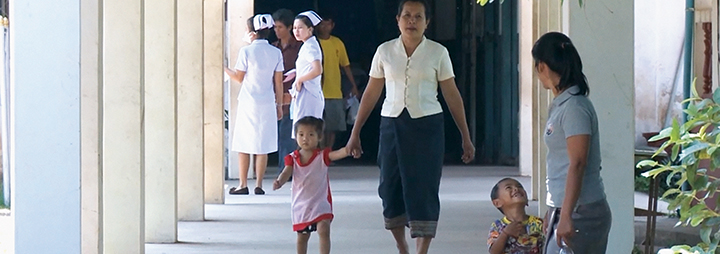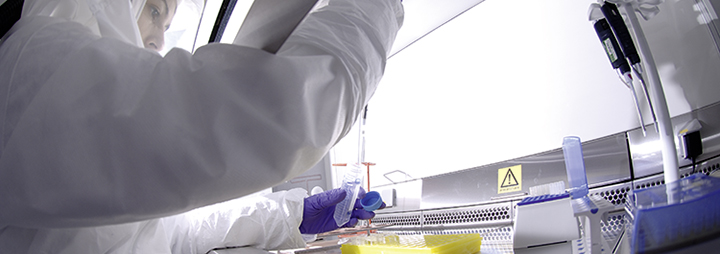FOR MULTIFACTORIAL TREATMENT
OF CERTAIN ILLNESSES
Institut Mérieux is involved in a number of cross-disciplinary research programs that address major public health issues in order to provide comprehensive solutions based on the expertise and complementarity of its companies. These programs also rely on some of the research supported by the Mérieux Research Grants and partnerships with international research networks.
These activities focus on five strategic areas:
- Neglected infectious diseases (such as tuberculosis)
- Antibiotic resistance and hospital-acquired infections
- Analysis of host responses in an infectious and cancerous context
- The relationship between microbiota and health
- Technological developments in diagnostics
![]()

Institut Mérieux is working with bioMérieux, Transgene, and ABL in two areas:
- Diagnostics, by improving conventional tests that can be performed in specialized labs as well as by developing functional or molecular new tests in order to simplify and improve detection of active tuberculosis, ensure effective clinical follow up, and identify resistance to antibiotics.
- Second-generation vaccines (BCG-boosters, therapeutic vaccines) that include a variety of antigenic targets to cover all the different phases of infection.
This work is possible through partnerships with governmental and non-governmental organizations and international research consortia, mainly in Europe, China, and the United States.

To fight against hepatocarcinoma, the 6th leading cause of cancer death, and against the hepatitis that cause this type of cancer, Institut Mérieux is collaborating with bioMérieux and Transgene to develop cross-disciplinary R&D programs to:
- Identify new diagnostic and prognostic biomarkers
- Develop immunological and molecular diagnostic tests
- Develop new treatments for hepatitis B using therapeutic vaccines
This work is based on several collaborations that were established through the Mérieux Research Grants and several international networks that bring together research teams from Brazil, the United States, China, Korea, Turkey, and France.
At the crossroads between nutrition and health, recent scientific work on the human metagenome has opened new lines of inquiry for medical research.
Sequencing the human gut metagenome should make it possible to identify biomarkers for health conditions and diseases and to modulate microbiota to prevent disease, improve treatment, and provide health benefits through functional foods.
In collaboration with Mérieux NutriSciences and bioMérieux, Institut Mérieux is conducting several internal R&D programs to develop standardized approaches to analysis of the human microbiota.
The Institute previously participated in the international MetaHIT (Metagenomics of the Human Intestinal Tract) program, which improved understanding of the gut metagenome and its relationship to health and disease. Since then it has established links with some leading teams in that field, awarding several Mérieux Research Grants.
Institut Mérieux is part of the national IMODI network that works to evaluate the impact of microbiota on response to cancer treatments. It is also a founder member of the Centre for European Nutrition and Health (CENS) which coordinates the work of academic and industrial researchers in order to gain a better understanding of nutrition-related pathologies and improve prevention and treatment.
It also participates in several national and international think tanks that evaluate the diagnostic and therapeutic potential of microbiota research.

